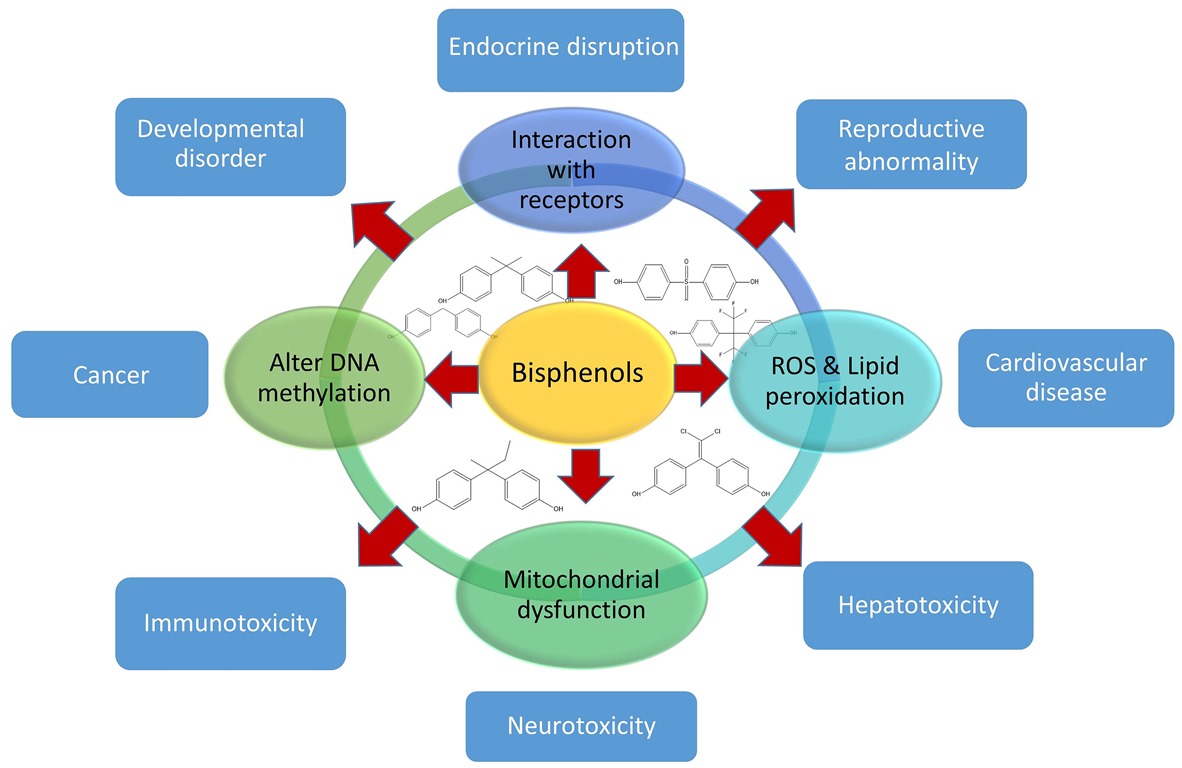Bisphenols are widely used in the synthesis of polycarbonate plastics, epoxy resins and thermal paper, which are used in manufacturing items of daily use. Packaged foods and drinks are the main sources of exposure to bisphenols. These chemicals affect humans and animals by disrupting the estrogen, androgen, progesterone, thyroid, and aryl hydrocarbon receptor functions. Bisphenols exert numerous harmful effects because of their interaction with receptors, ROS formation, lipid peroxidation, mitochondrial dysfunction, and cell signal alterations. Both cohort and case-control studies have determined an association between bisphenol exposure and increased risk of cardiovascular diseases, neurological disorders, reproductive abnormalities, obesity, and diabetes. Prenatal exposure to bisphenol results in developmental disorders in animals. These chemicals also affect the immune cells and play a significant role in initiating the inflammatory response. Exposure to bisphenols exhibit age, gender, and dose-dependent effects. Even at low concentrations, bisphenols exert toxicity, and hence deserve a critical assessment for their uses. Since bisphenols have a global influence on human health, the need to discover the underlying pathways involved in all disease conditions is essential. Furthermore, it is important to promote the use of alternatives for bisphenols, thereby restricting their uses.

